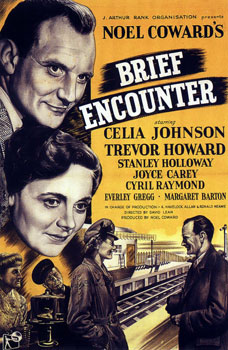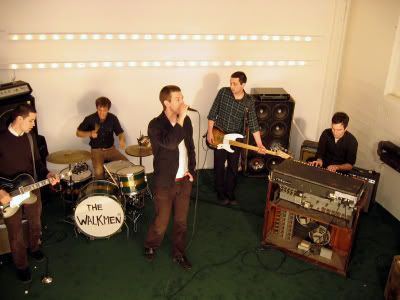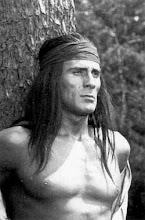Tuesday, September 30, 2008
Stereolab
Wednesday, September 24, 2008
Monday, September 22, 2008
Thursday, September 18, 2008
Wednesday, September 17, 2008
Faraquet

A few misconceptions about Faraquet
Looking back from 2008, the narrative seems pretty clear: In 1997, guitarist Devin Ocampo, drummer Chad Molter, and bassist Jeff Boswell form the power trio Faraquet. The band tours hard, pioneering a herky-jerky style full of confounding rhythms, odd harmonies, and the kind of dexterous guitar work that would baffle music nerds for a decade. Wild popularity ensues as D.C. thrills to the sound of compound triple meter. Faraquet goes on to release two singles, a split EP with Milwaukee's Akarso, and a full-length on Dischord Records before parting ways in 2001. But now, on the eve of the band's first complete-lineup show in seven years (Faraquet performed four dates in Brazil last summer sans Boswell), it seems that the story didn't really go that way.
Who knew that Molter couldn't play the drums? That nobody came to Faraquet shows--well, at least not for a few years? That King Crimson was not an acceptable punk-rock influence in 1997? Molter (who now resides in Colorado) reveals a few misconceptions about the band and hints at the larger--and sometimes lazier--picture.
Faraquet enjoyed widespread popularity as a result of hard work and heavy touring.
The A.V. Club: Do you feel like Faraquet became more popular once you disbanded?
Chad Molter: The interest definitely came after the band broke up. For the first couple of years we were just plugging away playing for nobody. Toward the end it started to pick up and opportunities presented themselves a little more often. Also, we weren't a self-promotion machine. We only went on three tours. [Molter later recalls two more short tours with Burning Airlines, bringing the total to five tours in roughly five years.] We played the West Coast once. Never did Europe. It's not surprising that it took people a while to come upon the band.
AVC: Why did it take so long for the band to do anything?
CM: Because we were really slow. It took us a while to write new songs. And we were a little bit lazy, too. And nobody cared.
Chad Molter knew what he was doing behind the drum kit.
AVC: At the beginning of Faraquet you had never played drums before. Devin's music is pretty technical--what was the learning process like?
CM: It actually was really painful. The kind of stuff Devin writes is pretty physically demanding, and I was definitely not there at the beginning. Those guys were very patient with me. It took a year or so. I figured out a few tricks. I'm not about the rudiments; I'm about tricks.
AVC: What are the tricks?
CM: I can't tell you.
Faraquet was a part of D.C.'s art-punk scene.
AVC: How did you guys fit in with the rest of the D.C. music community back then?
CM: Maybe this was true in the '90s more than now, but there was the arty crowd and then the not-so-arty crowd. We fell in with not-so-arty crowd even though I thought our music was pretty weird, but whatever.
AVC: Would I have seen you hanging out with The Cranium [a late-'90s art-punk D.C. band, members of which went on to form Gang Gang Dance]?
CM: No. [Laughs.] Never us and the Cranium hanging out. I remember the few times I went to The Embassy [a punk group house in Mt. Pleasant that was home to bands such as The Make-Up], it was like you get that silence where everybody stares at you, you hear a pin drop, and then the party resumes. I was definitely a fan of all that music and I knew a lot of those people, but we were just not a part of that whole thing.
It was cool to be into King Crimson in '97.
AVC: Did you feel sort of alone among your peers in terms of liking classic rock?
CM: People were into punk or whatever. Talking about being influenced by classic rock was looked down upon. But those were our big influences, even though we weren't a classic-rock band. But yeah, having that as an influence we felt a little bit alone at the time. Then again, we didn't care.
The full-length LP The View From This Tower cemented the band's status as an indie-rock powerhouse.
AVC: Did signing with Dischord change anything? Did more people start turning up to shows after the full-length came out?
CM: No. We recorded the album ourselves and paid for it ourselves. Then it took a while for Dischord to say "okay, we'll put this out." By the time it came out, the band wasn't around for very much longer--we did one more short tour, I believe, and then broke up. We didn't stick around long enough to see things change.
AVC: Did the record sell well? Has it continued to be popular since you broke up?
CM: It did. And it continues to sell pretty well--I mean, I'm comparing it to other Dischord releases. In that realm it has done pretty well. I haven't noticed any surge, I think that it has just steadily sold. [To date, the record has sold TK copies.] I don't know why or how it has happened. It resonates with a lot of people and still has a fan base eight years after the fact.
The members of Faraquet are ready for their reunion show.
AVC: Have you guys practiced?
CM: No. Not at all. I'm flying back [Thursday, Sept. 11]--we have a week to rehearse. Devin and I played these songs a year ago in Brazil. So I think we'll be okay. --Aaron Leitko.
Faraquet performs at 9 p.m. with Statehood and Red Tag Rummage Sale Friday, Sept. 18, at The Black Cat Backstage. Tickets are $8. Call 202-667-4490 for more information.
Sunday, September 14, 2008
David Lean Restored
In his later and best-remembered works like Lawrence of Arabia, British director David Lean firmly established the clichés of Oscar bombast—exotic locations, grueling three-hour run-times, and subtly insinuated sexual deviance. But in his earlier films Lean was at the service of queen and countrymen, firmly solidifying many of the British cultural stereotypes that we Americans still enjoy today. The National Gallery of Art will show restored versions of eight of these films, and the director’s collaborations with Noel Coward alone are a survey of mid-century Englishness. The World War I naval drama In Which We Serve (1942) revels in stiff-upper-lip military romanticism. The comedy Blithe Spirit (1945) serves up the requisite droll English humor. Brief Encounter (1946)—the tale of a middle-class English housewife’s unconsummated affair with a married physician—is positively brimming with cloistered emotions, unfulfilled passion, and guilt. You’d need a plateful of Marmite on toast and a cupboard full of Balearic techno 12-inches to get more British than that. Lean’s subsequent Dickens adaptations—Great Expectations (1946) and Oliver Twist (1948)—begin to introduce the grandiose settings and epic tendencies that the director would use to great effect later on, but they too make the British Isles’ industrial grayness and bad food storyline linchpins. Some of those stereotypes are up for revision, but until some brave U.K. auteur is willing to tackle his country’s inexplicable devotion to Manic Street Preachers, Lean’s work will continue to endure. “David Lean Restored” runs through Sunday, Dec. 28, at the National Gallery of Art, East Building Auditorium, Constitution Ave. between 3rd and 7th Sts. NW. Free. (202) 727-4215. —Aaron Leitko
Wednesday, September 10, 2008
Sunday, September 7, 2008
Alexander Kluge

If Alexander Kluge wasn’t the first auteur to apply the gray colors and paranoia that defined New German Cinema, then he was close at hand and holding a paintbrush. The Goethe-Institut’s retrospective on Kluge, “Film Will Survive,” features four of the director’s longer works, accompanied by relevant short films, beginning Sept. 8 with Kluge’s early triumphs Brutality in Stone (1966) and Yesterday Girl (1966). Brutality in Stone, an 11-minute montage assembled from footage of the ruined Nuremberg rally grounds, contemplates decaying Nazi architecture as a silent witness to Word War II atrocity. While that may seem old hat in the era of the History Channel, it resonated deeply back when Germany was desperately trying to look away and start over. Yesterday Girl, Kluge’s first feature-length film, critiques postwar German society by following an young and emotionally desolate Jewish woman from betrayal to betrayal as she tries to get ahead, ultimately descending into a life of petty theft. By using on-set improvisation, wild juxtapositions, and jarring narrative leaps, Kluge helped to establish a distinctive world for German cinema. But it’s a slightly harrowing one, where a common person’s soul generally gets crushed and birds don’t sing but scream in pain. The series runs to Monday, Sept. 29, at the Goethe-Institut Washington, 812 7th St. NW; see Showtimes for this week’s films; see goethe.de/washington for a complete schedule. $6. (202) 289-1200.







